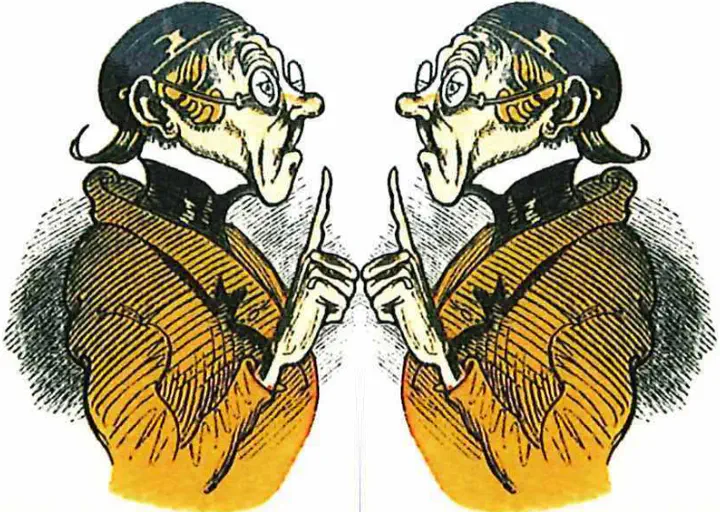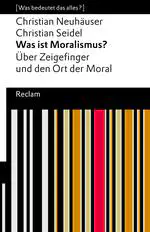Moralism & the ethics of talking about morality
 Illustrator: Wilhelm Busch
Illustrator: Wilhelm BuschAccording to a recurring assessment, our time is characterized by increasing moralism in public discourse and in interpersonal interaction as well as a tendency to moralize the world we live in. This project examines what this could actually mean and how it should be judged normatively if this assessment is correct: What (and how bad) is moralism? The guiding principle here is the perspective of understanding moralism as a morally deficient form of speaking and deliberating about morality.
In an examination of recent linguistic and social science research on moralization, the project also explores the hypothesis that the previous moral philosophical perspective on moralism is narrowed by a paradigm characterized by interpersonal moral criticism and accusations, which does not adequately capture the collective dimension of moralization processes in discourses, in the political sphere and in social practices (such as science). The project therefore also aims to expand our own previous work on the topic in this respect and to examine collective moralization as an independent phenomenon in more detail, both conceptually and ethically: What does collective moralization consist of (of discourses or in science) and how is it to be judged morally?
It will also be necessary to ask whether previous analyses, in which the violation of autonomy and freedom played a central role, can be upheld. One working hypothesis is that the moralization of public discourse can be understood as an emergent phenomenon, namely as a moral distortion of the argumentative landscape that only manifests itself at the collective level of discourse (explicated in argumentation theory as a dialectical structure that captures the rational core of a discourse). This decision-making form of (collective) moralism can be understood as a morally deficient form of collective speaking and deliberating about morality. This opens up perspectives for further empirical and moral philosophical investigations that can contribute to interdisciplinary understanding between (moral) philosophical and empirical approaches and to the ethics of collective action problems in discourses.

